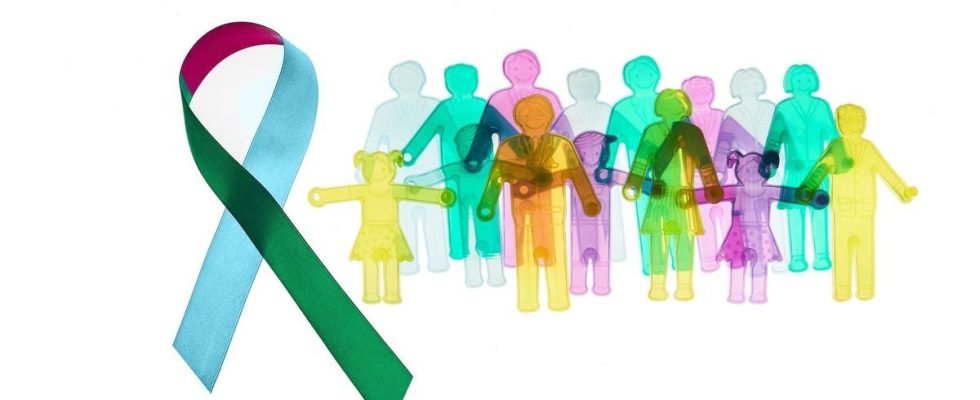Published on
Updated
Reading 3 min.
Julien Guinebretière suffers from a rare disease called epidermolysis bullosa. For Doctissimo, and on the occasion of International Rare Disease Day, he agreed to share his extraordinary daily life. Testimony.
When a disease affects less than one person in 2,000, or less than 34,000 people in France, it is classified as a rare disease. However, they affect many more French people than we think, since 6,000 diseases have been described today (which therefore involves 3 million people in our country). Among them, Julien Guinebretière, suffering from epidermolysis bullosa, reveals his daily life to us.
What is this disease you have?
Julien Guinebretière: I was born with epidermolysis bullosa, a disease that comes from two bad genes in my parents. Suffering from epidermolysis bullosa means that the different layers of my skin do not stick together, that my body does not produce “natural glue”, dry collagen in particular.
This deficiency causes the skin to peel off at the slightest shock or friction, either by blood bubbles or by tearing of the skin and third-degree burns on all parts of the body. It can also create internal injuries and impact the esophagus through the passage of food.
The image that seems most telling to me is that of a potato that is boiled and whose skin comes off easily. Epidermolysis bullosa is a bit the same thing.
How does this pathology affect you on a daily basis?
In many ways. Above all, this requires daily nursing care for all parts of the body that require it. So it’s a lot of time, but also a lot of suffering. This illness is therefore very difficult to accept on a psychological level, even if personally I have a temperament which allows me to overcome it. Of course, we can always ask ourselves:Why me ?“, “Why this ?“…But I feel that I have no choice. I have always wanted to fight, and I always will, to continue moving forward and try to live like able-bodied people, despite everything. Today, I have a job, a car, I build a house… a whole life.
What difference does having a “rare” disease make?
Even if there are not many of us, there are often associations whose help is precious. I am part of the association Debra Francewhich allows us to discuss good practices on a daily basis.
Conversely, the fact that it is not a disease that affects many people necessarily complicates our daily lives. In Angers where I live, no one knows my pathology, I had to train the doctors who follow me myself to explain the disease to them. I had an operation on my esophagus, it was up to me to warn the anesthetist of the products and procedures that were possible or not according to my criteria.
The Departmental House for Disabled Persons (MDPH) also removed my recognition of disability, because they believed that I no longer suffered from a disability, even though they did not know about my illness. This implies having the “chatter” necessary to say to the authorities: “You don’t know what I’m going through, let me explain my suffering to you.”. Having a rare disease also means having to make people aware that this disease is really impactful.
Do you still have hope for treatment in the near future?
Beyond daily care, I educate myself. And I know there’s a lot of research on the subject. Gene therapy projects, dry collagen injections, and healing creams that would go deeper into wound healing are underway. These are solutions that can really improve our daily lives.
But from clinical trials to marketing, it often takes several years and this research requires a lot of money. As such, the Telethon missions, for example, are essential for us. It is by deploying all these research efforts and these tests that we will find the solution. But for now, no miracle treatment exists, there is still no cream or pill to swallow to make our skin more resilient.
